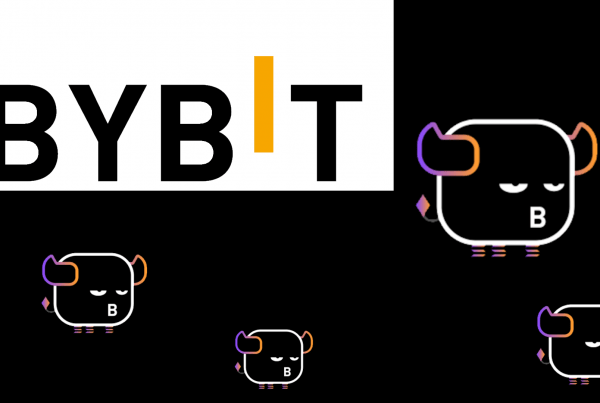
In the expanding world of digital finance, a new player is emerging that could reshape how we see digital finance: Central Bank Digital Currencies, or CBDCs.
As governments and central banks across nations steer towards this new form of digital currency, the resultant effects are likely to extend to different sectors, especially the crypto gambling industry.
In this article, we’ll go into the close relationship between CBDCs and crypto gambling, looking at how these state-backed digital currencies could affect regulations and the very future of this interesting but caution-inspiring sector.
Understanding CBDCs
At the heart of it, Central Bank Digital Currencies are just digital representations of a country’s fiat currency, as issued by the country’s central bank. But unlike the decentralized cryptocurrencies like Bitcoin, which operate on distributed ledger technologies and don’t have a central authority, CBDCs are centralized and are backed by the issuing government.
The potential for CBDCs is rapidly expanding across the globe. As of August 2023, many countries are developing or piloting CBDCs, including China’s e-CNY and the Bahamas’ “Sand Dollar.” A report by Reuters also claims the ECB has plans to launch the digital euro.
Several factors have motivated this global push towards CBDCs. They include;
- Financial inclusion. CBDCs can extend financial services to the unbanked by providing a digital form of money.
- Streamlining costs for cross-border payments, improving monetary policy, and stabilizing finance.
The Crypto Gambling Industry
While CBDCs are a relatively new idea, the crypto gambling industry has been flourishing for several years. As of 2024, the industryhas grown substantially. While exact figures can be inconclusive due to the industry’s somewhat opaque nature, suggest it’s a $250 million market.
Advantages of Crytocurrency in Gambling
- Popular platforms like Stake, Cloudbet, and FortuneJack attract millions with diverse games.
- Cryptocurrencies offer partial anonymity and privacy, appealing to gamblers in restricted regions.
- Cryptocurrency transactions generally incur lower fees and enable faster deposits and withdrawals.
Disadvantages of Crytocurrency in Gambling
- Crypto gambling faces regulatory challenges.
- Heightening of problem gambling due to privacy and ease.
- Past high-profile breaches
Regulatory Influence of CBDCs on Crypto Gambling
The introduction of CBDCs will most likely bring enhanced regulatory frameworks for digital transactions, which could heavily impact the crypto gambling sector.
Central banks and governments issuing CBDCs will likely implement more stringent rules to prevent misuse, and these regulations could extend to all digital currency transactions, including those on gambling platforms.
The introduction of CBDCs could transform crypto gambling by enforcing strict Anti-Money Laundering (AML) and Know Your Customer (KYC) protocols. This would necessitate gamblers providing thorough personal details, and platforms upgrading their processes. Additionally, CBDCs’ programmability could allow governments to set gambling limits and enforce geographical restrictions.
While increased regulation might seem daunting for the industry, it’s really not all bad news. Regulatory clarity could also bring legitimacy. Platforms that comply with CBDC-induced regulations could gain the trust of a broader user base.
Financial Inclusion and Accessibility
One of the primary goals of CBDCs is to promote financial inclusion. This democratization of digital currencies could have many implications for the crypto gambling industry.
In developing regions, many are unbanked and underserved by traditional finance. CBDCs, supported by central banks and accessible via basic mobile phones, could simplify digital transactions and potentially expand online gambling to a vast new user base.
Furthermore, CBDCs could streamline cross-border transactions. Currently, international gamblers often face high fees and delays when funding their accounts or withdrawing winnings. CBDCs, especially if interoperable between countries, could make these transactions as easy as sending a text message.
However, this increased accessibility is a double-edged sword. On one hand, it opens up new markets for crypto gambling platforms. On the other, it could increase issues around problem gambling.
Competition and Innovation in the Crypto Gambling Space
The rise of CBDCs will definitely alter the competitive view of digital currencies. How will a digital yuan or digital euro compete with Bitcoin or Ethereum in the gambling space? The answer isn’t straightforward. Cryptocurrencies have first-mover advantage and a strong ideological backing among users who value decentralization and resist government oversight. These users might see CBDCs as antithetical to the crypto ethos and stick with traditional cryptocurrencies for gambling.
However, CBDCs have significant advantages. Their government backing provides stability and trust, which could attract risk-averse users who find cryptocurrency volatility unsettling. Moreover, if CBDCs achieve widespread adoption for everyday transactions, users might prefer the convenience of using the same digital currency for gambling. This competition could drive innovation in the crypto gambling sector.
Future Outlook
As we look towards the future, the relationship between CBDCs and crypto gambling will likely be one of adaptation and coexistence rather than outright competition. Here are some predictions and potential developments:
- Hybrid Platforms: Expect to see gambling platforms that seamlessly integrate CBDCs, traditional cryptocurrencies, and even tokenized assets.
- Regulatory Tech (RegTech) Boom: CBDC regulations will drive innovation in regtech, prompting startups to develop real-time KYC, automated AML, and blockchain analytics for gambling compliance.
- Gamified Finance (GameFi) Integration: Finance gamification could blend with gambling, introducing “play-to-earn” models where users earn tokens or fractional NFTs as rewards, enriching the experience.
For gambling platforms to thrive in this evolving landscape, strategic adaptation will be key. They would need to:
- Engage with Regulators: Be proactive in discussing with financial authorities how CBDCs will impact the sector. Helping shape regulations is better than merely reacting to them.
- Invest in Compliance: Build robust KYC, AML, and responsible gaming measures. Compliance should be seen as a competitive advantage, not just a cost.
- Diversify Currency Options: Don’t put all eggs in one basket. Offer a range of digital currencies to cater to different user preferences and hedge against market volatility.
Conclusion
The rise of CBDCs is a critical evolution in money, offering challenges and opportunities for crypto gambling. Increased regulation will demand compliance, while accessibility could attract millions of new users. The landscape will feature CBDCs, cryptocurrencies, and tokens coexisting, with successful platforms navigating regulations and leveraging innovations to offer secure, engaging experiences. Policymakers and industry players must stay informed and adaptable, as CBDCs transform both gambling and the essence of money.



